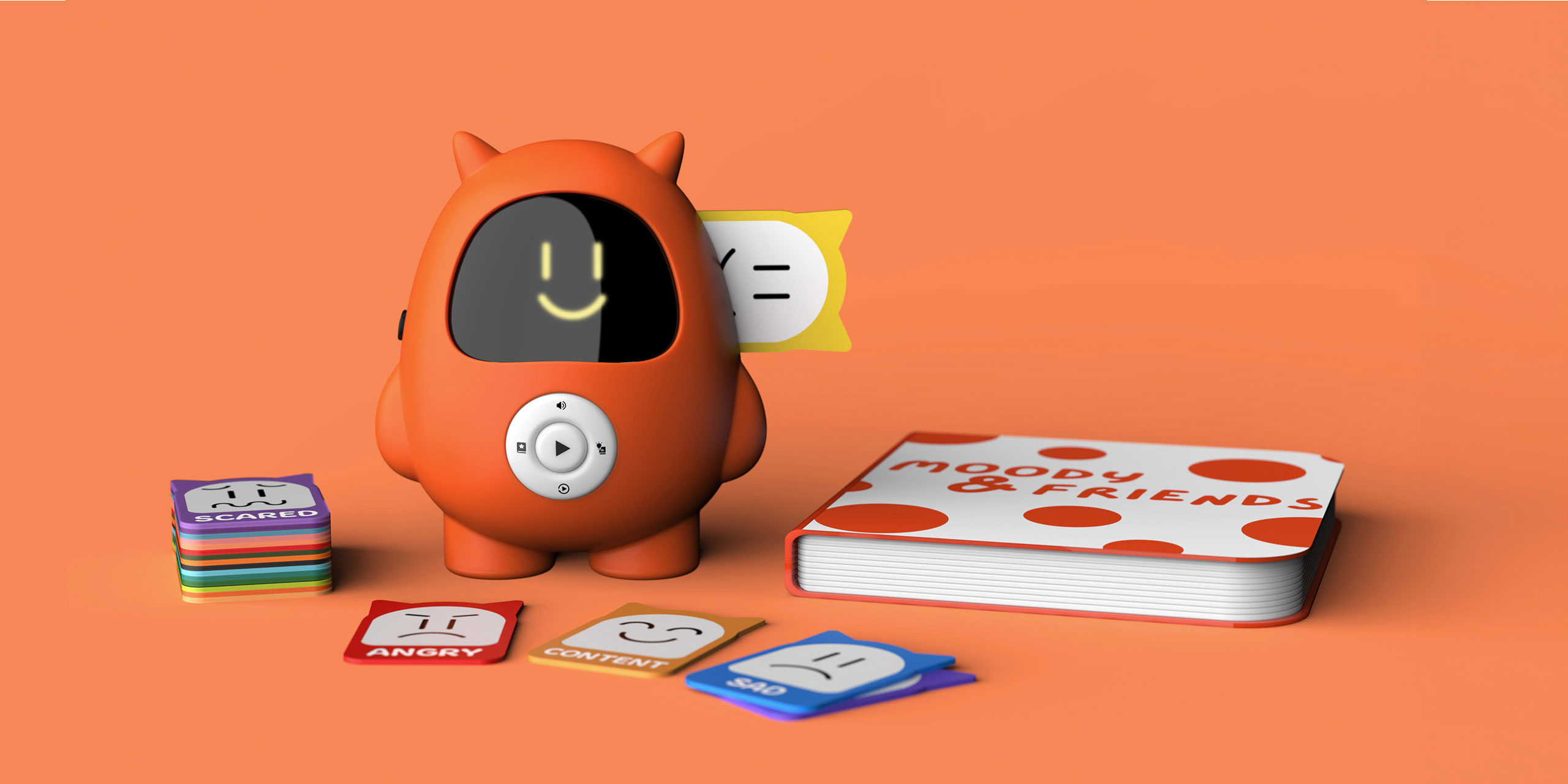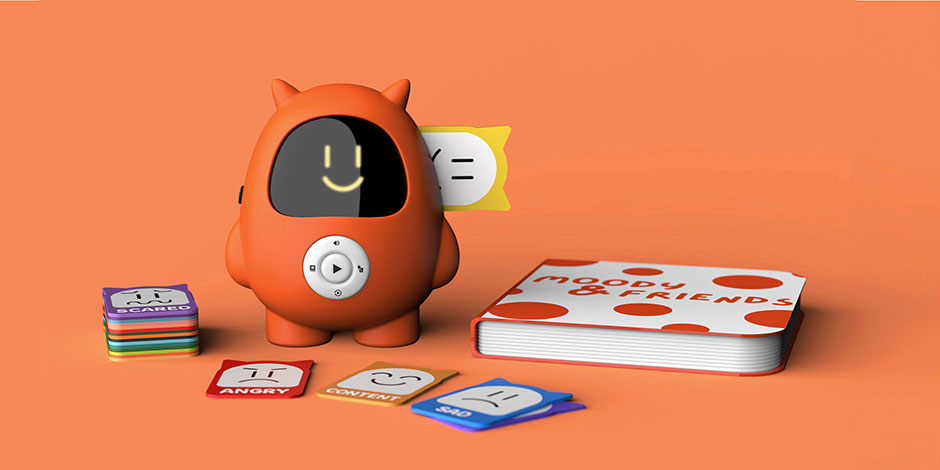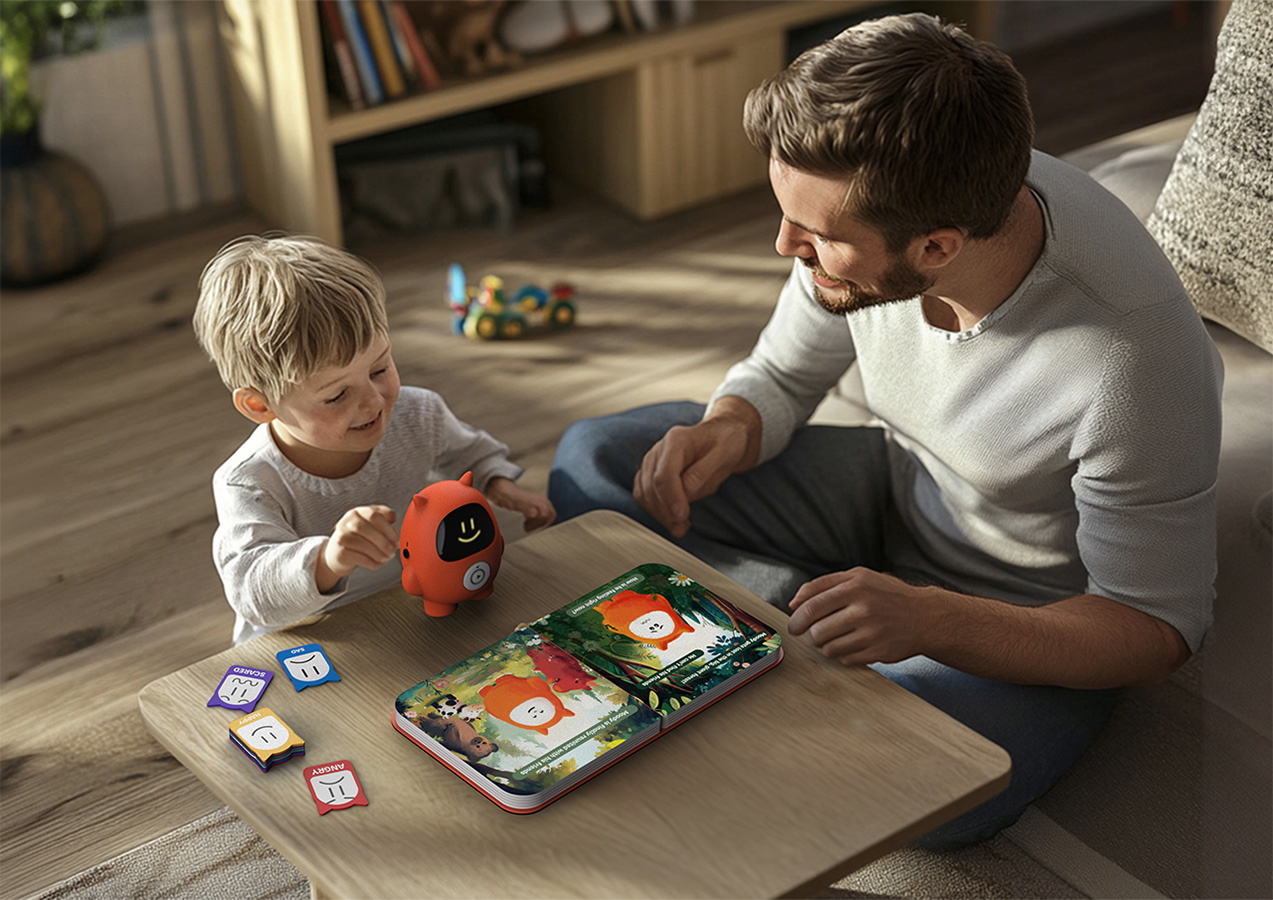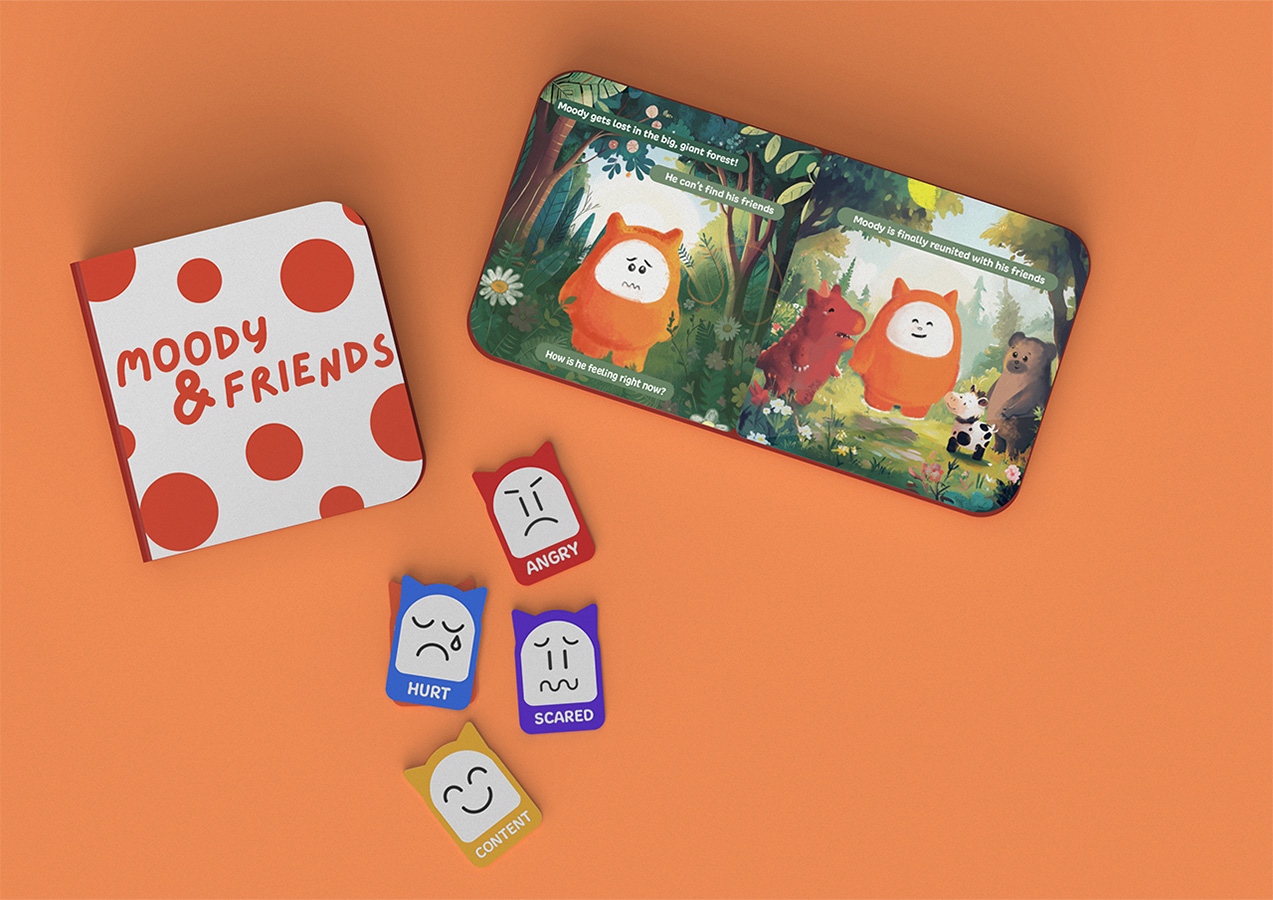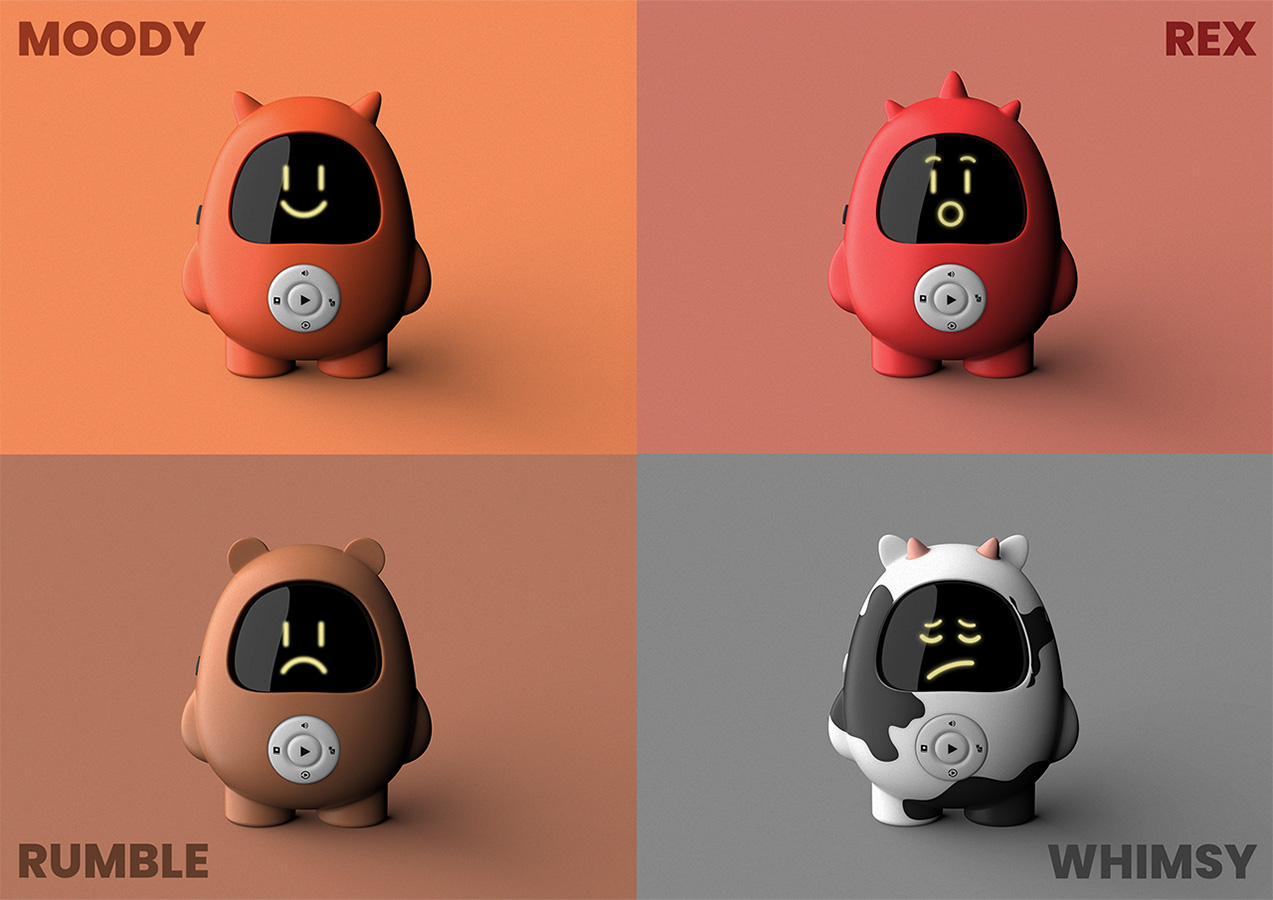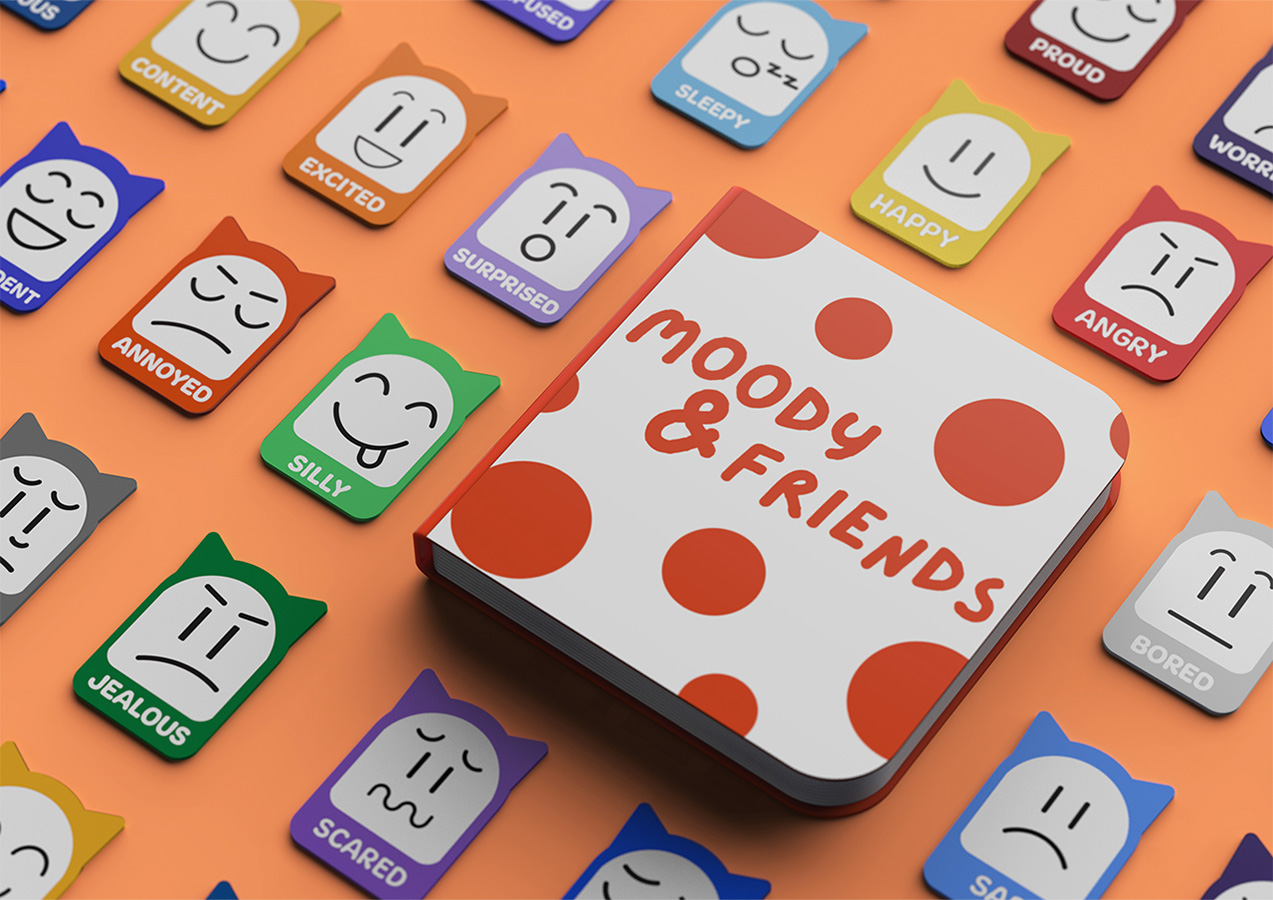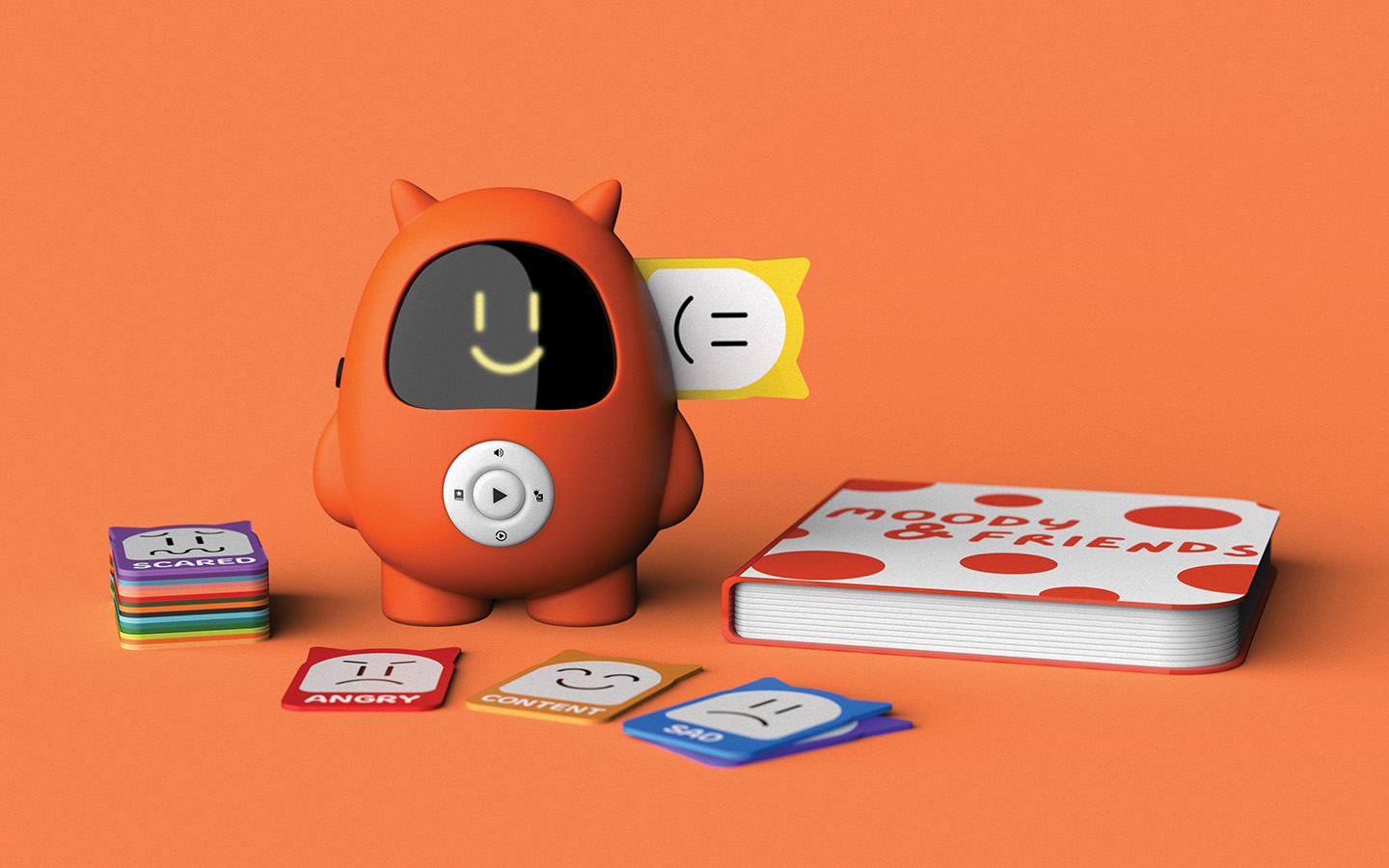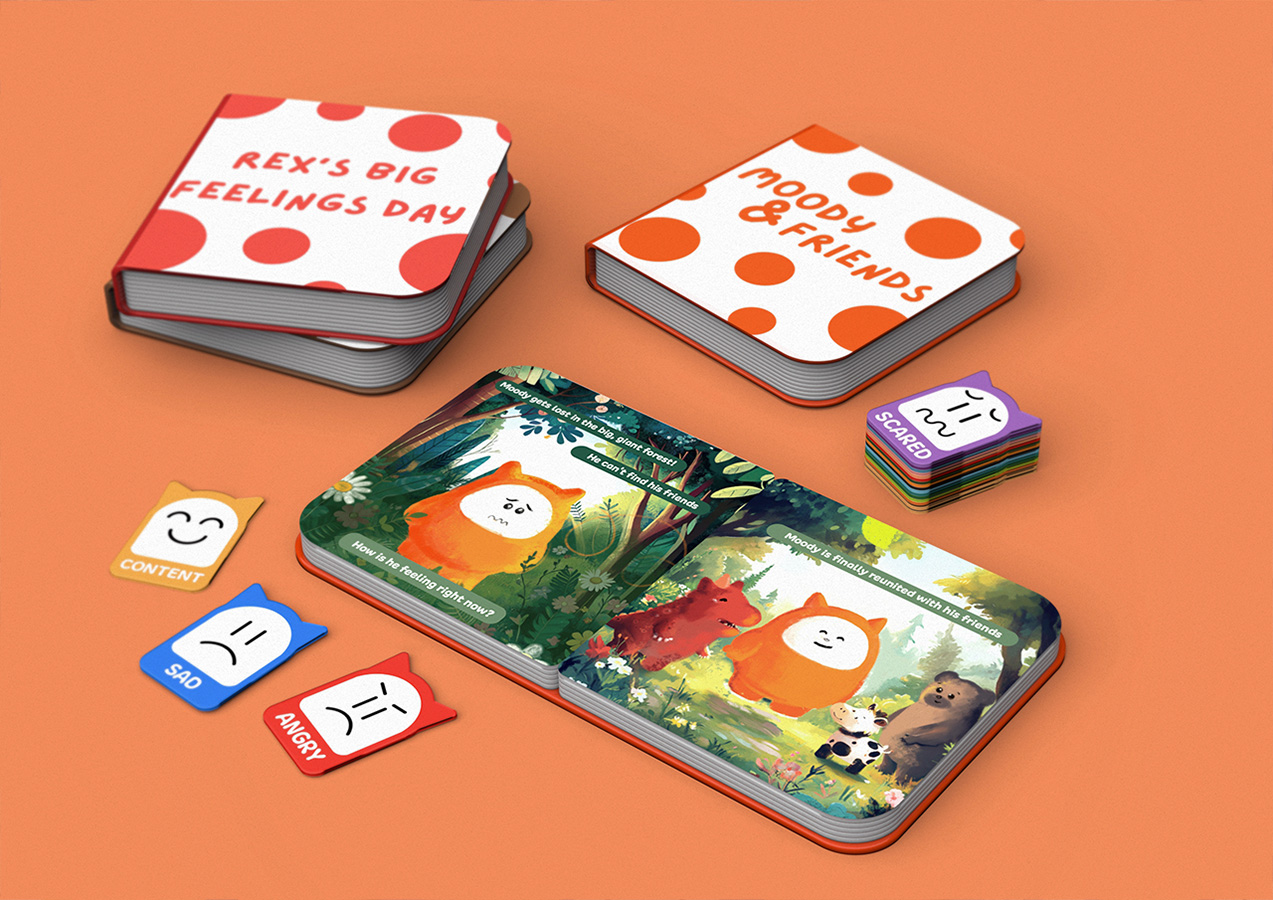Moody & Friends was developed as my Capstone Project, designed to address the gap in emotional education for young children through meaningful parent-child interaction. The process began with in-depth qualitative research, including parent interviews and data analysis, to understand how families approach emotional learning. Insights showed that although parents value emotional development, there are few engaging, child-friendly tools to support emotional learning. Building on these findings, I explored how storytelling, an intuitive and enjoyable activity for families, could become a platform for teaching emotions.
Initially, my concepts explored more technology-driven solutions, including smartphone connections and Bluetooth to coordinate the toy with digital storybooks. However, through research and user feedback, it became clear that screens and complex connectivity risked distracting from the core goal: facilitating direct emotional conversations between parents and children. Recognising this, I pivoted the design toward a fully screen-free, low-tech approach, using manual buttons for syncing and RFID technology for interactions to keep the experience tactile, simple, and intuitive.
A key goal was creating a toy that grows with the child; to achieve this, I developed a growing ecosystem of storybooks and emotion cards that become more nuanced and complex as children mature. Additionally, the design includes interchangeable silicone injection-moulded outer cases, allowing families to refresh Moody’s appearance or introduce new characters without replacing the entire toy. Throughout the process, I developed multiple prototypes, iterating both the physical design and functional systems. I built a working prototype using Arduino and RFID readers, successfully linking emotion cards to Moody’s responses to validate the core interactive concept. I also created prototypes of the silicone cases and designed an illustrated storybook to test narrative flow and engagement. Ultimately, the project exceeds the brief by delivering a screen-free toy that nurtures children’s emotional growth and deepens parent-child connection through engaging, interactive storytelling.

